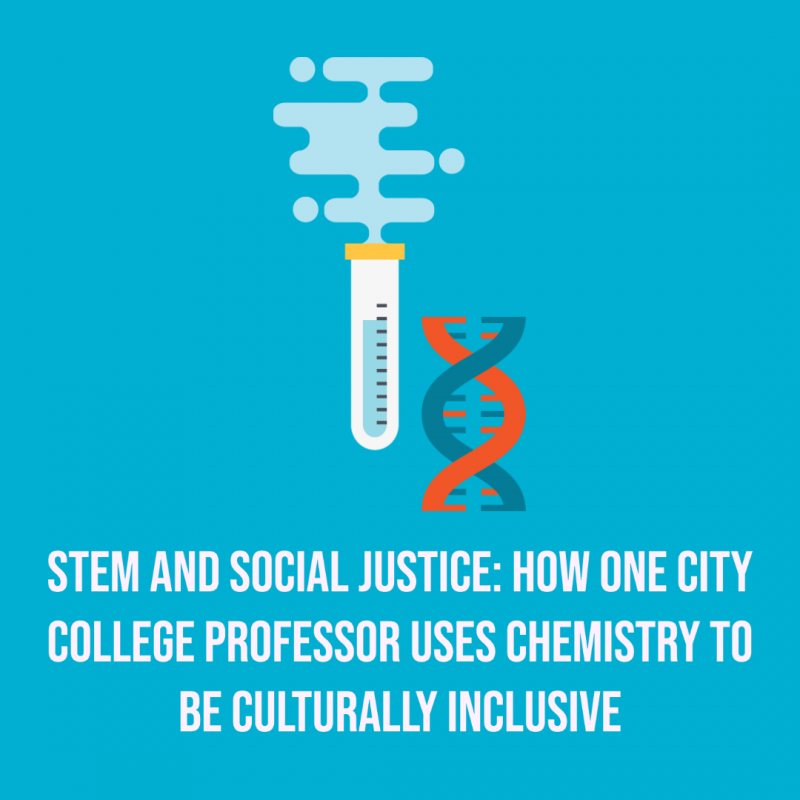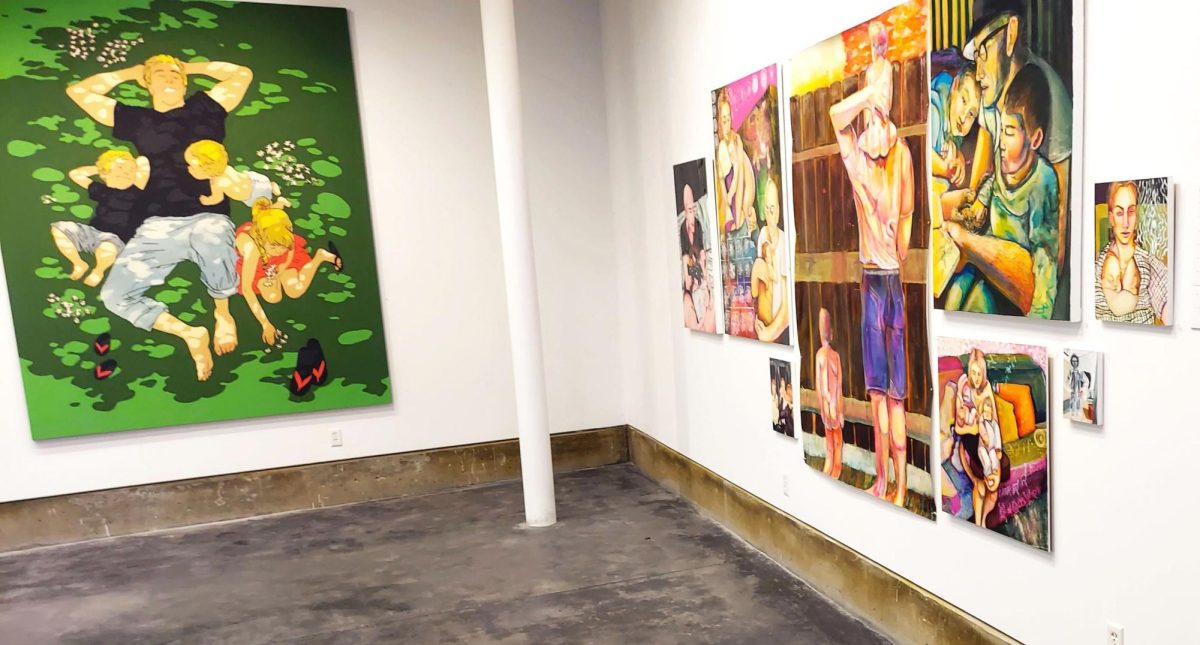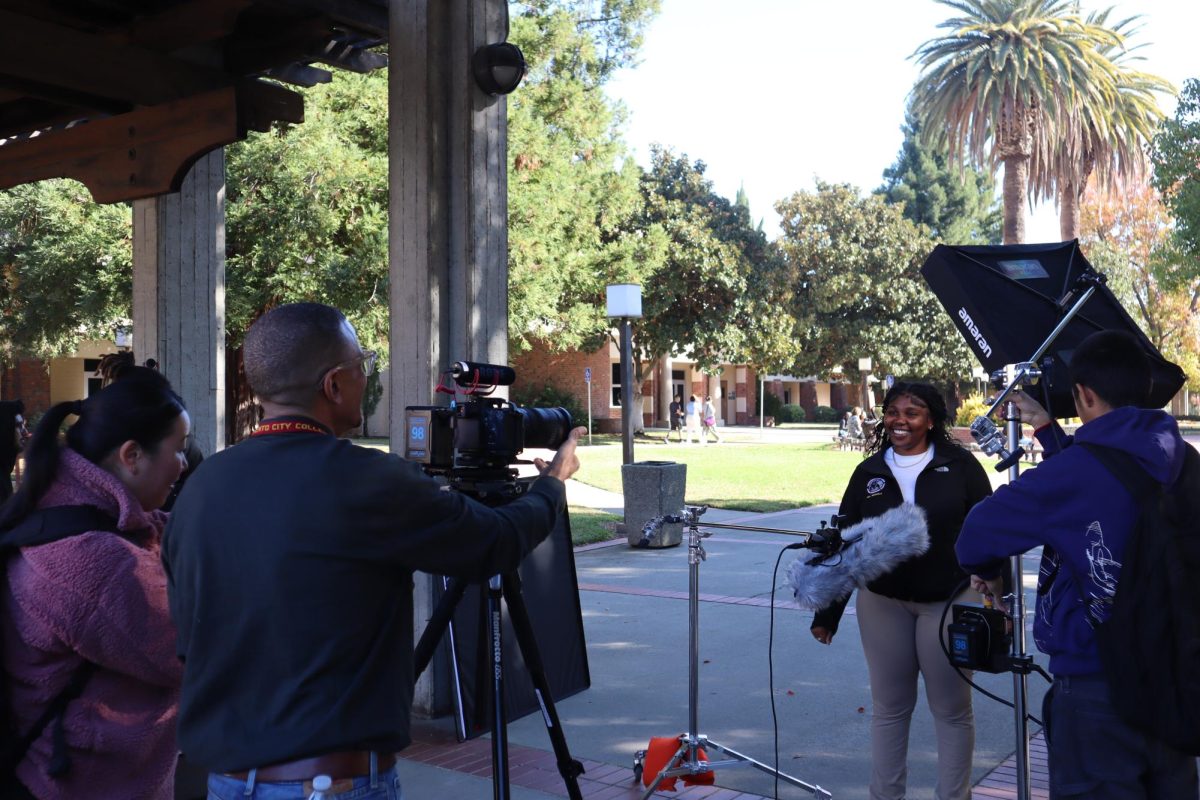This semester, Devoun Stewart, a chemistry professor at City College, taught his students about the water catastrophe in Flint, Michigan, in which high levels of lead and other bacteria were found in the city’s water source, causing major health issues for the residents of Flint. Stewart, who is also the college’s equity adviser, used this lesson as a way to combine social justice movements with chemistry to create a more relatable and inspiring lesson plan for his students.
Stewart hosted a workshop called “STEM Institute: Developing Culturally Responsive Courses” Dec. 2, providing a platform for students to share their experiences and perspectives surrounding culturally responsive teaching in their science, technology, engineering and math courses.
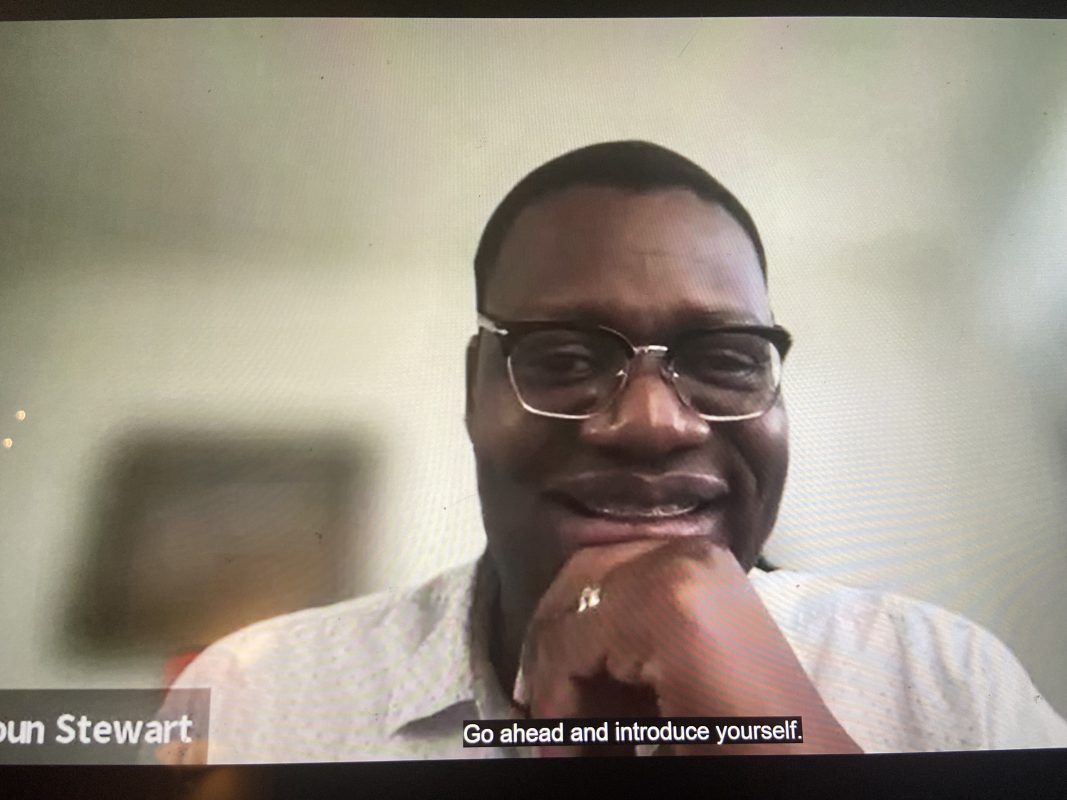
Throughout the workshop, Stewart prompted two of his chemistry students, Tiesha Speights and Anthony Salas, with questions about their experiences taking his class, while viewers on the Zoom meeting — made up of mostly college professors — watched and asked questions.
Speights is a mother, wife, college student and an aspiring nurse. Salas is a college student with three jobs: He works as a cardiac monitor technician for Mercy General Hospital, a medical assistant for Sutter Health Walk-In Care, and a cardiac monitor technician for Sutter electronic ICU. Both students relayed their journeys from low-income backgrounds and their experiences living busy lives while attending school.
Speights and Salas explained that traditionally the teachings of college classes are based strictly on the coursework, and that they were initially quite surprised by the way Stewart had arranged his class. But the surprise very quickly turned to enthusiasm.
“On the first day, when Dr. Stewart introduced that we will be learning about the Flint water crisis and how it’s going to tie into chemistry, immediately, I was fully invested,” Salas said.
Speights compared previous science classes she had taken to Stewart’s chemistry class and explained her different takeaways from each class.
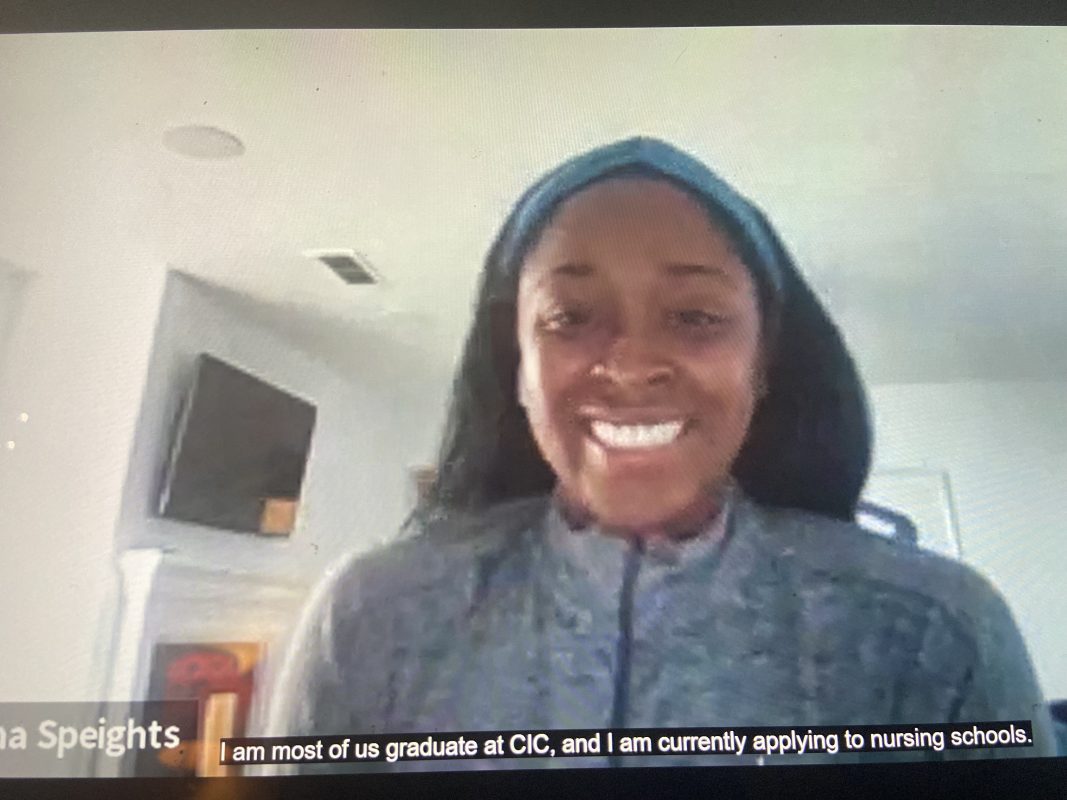
“I’ve taken chemistry one time before, and to me, it was just numbers on a board,” Speights said. “Read chapters 1-16, memorize those vocabulary words and definitions, and when I left that class I honestly didn’t know anything about chemistry. But with this class, I feel like I get to take things with me. It makes me want to come to class. I really love the tie-in of social-economic issues with chemistry because it helps me gain a better understanding of why I am doing these equations, why thermal chemistry makes sense, what the true meaning of molarity is, so I just have a better understanding of chemistry overall.”
Both students emphasized the platform that college professors have to influence their students, and to do so positively. Students look up to professors and place value in what they teach, Speights and Salas said. They are given an opportunity to not only teach their coursework but to inspire conversations that could lead to solutions about real problems the world faces.
“We trust our professors,” Salas said. “And we respect our professors, and I feel that as a professor, you can use that privilege to really educate your students about what’s going on in the world.”
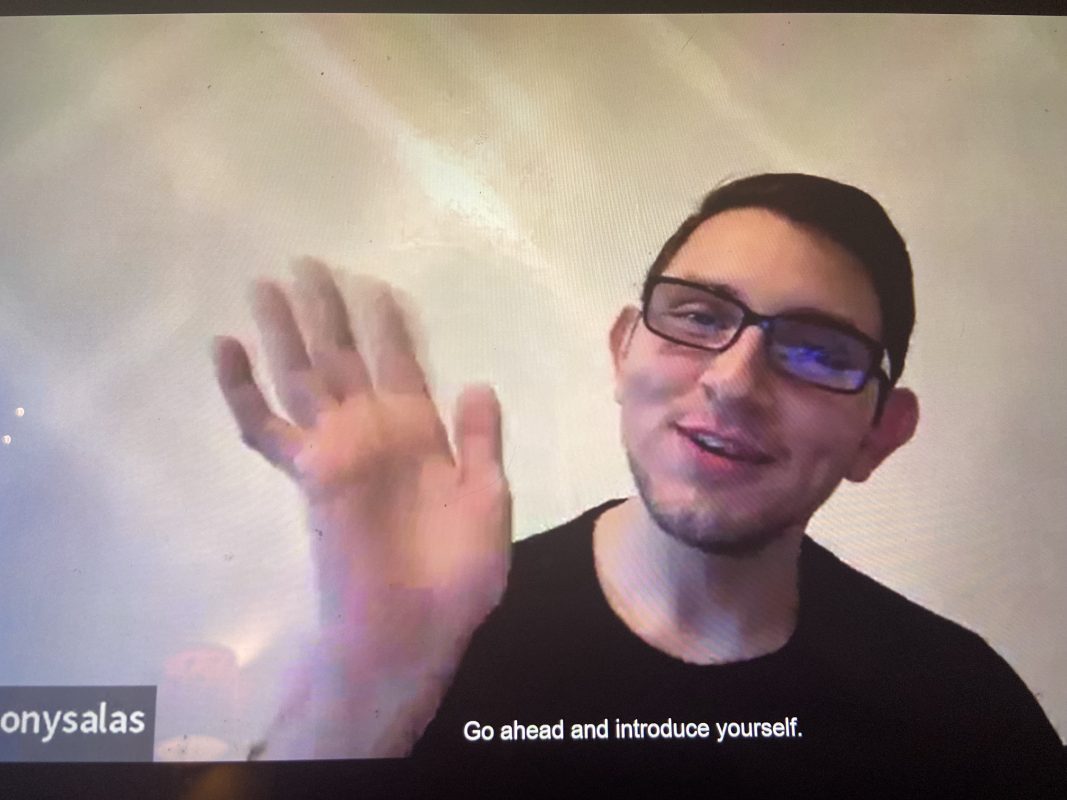
“It actually makes us want to learn more,” Speights said. “Instead of just opening some book … show us with real life situations. … When you provide relatable experiences in a classroom, the knowledge is more accepted in your brain.”
The students also emphasized the importance of teachers allowing for relatability in classrooms — allowing each student to share their own unique perspective and showing examples that don’t only reflect the experiences of the white and wealthy.
“Watching Flint reminded me that people of poverty matter,” Speights said. “Having it in chemistry showed me that, wow, he’s not ignoring something that’s going on in the real world. … It feels good to come to class and know that things in our society are not being ignored.”
As the panel came to a close, Stewart allowed time for the audience of professors and faculty to ask questions. One professor asked how it made the students feel to be in a classroom with a white professor who doesn’t shed light on social justice issues or make any efforts to diversify the lesson.
“It makes me feel like you don’t care,” Speights said. “Or as if maybe you are undermining what’s really going on in the world around us. White [people] are considered privileged, and I have an understanding that none of us can help our privilege, but we can all speak on what’s wrong and what’s right.”
The panel concluded with Speights and Salas giving their closing statements.
“Whether it’s the LGBTQ+ community, the Black community, the Indigenous community, the Latinx community … throughout history their issues have gone under the rug,” Salas said. “We’re actually finally bringing it to life, bringing the conversation to the table where people can actually talk about it and discuss solutions or put plans into place to fight for these communities.”


























